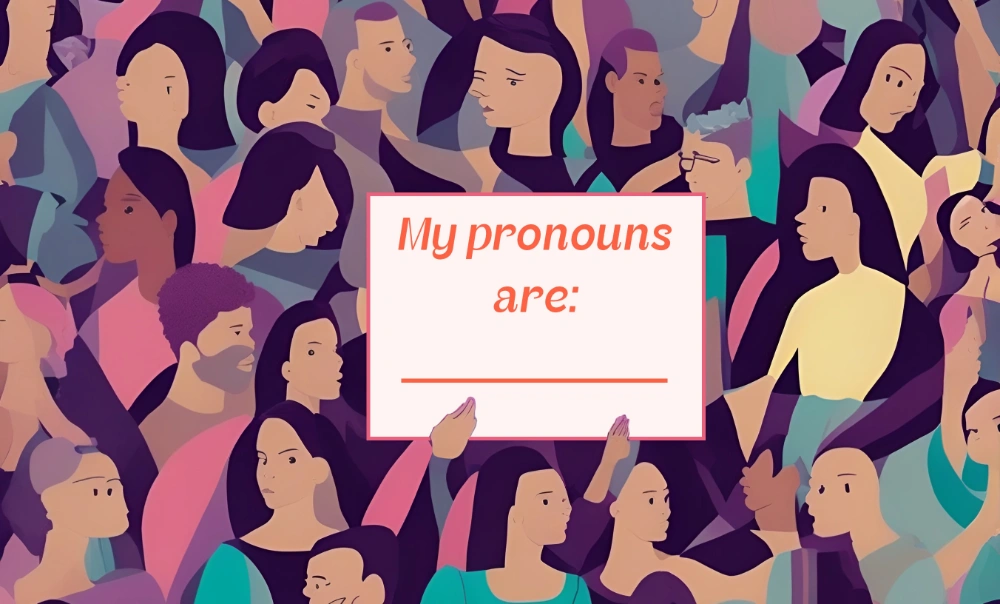How to Correct Someone Who Misgenders You

Being misgendered can leave you feeling disrespected, invalidated, and invisible. It’s an all too common occurrence for transgender individuals, especially those who are just beginning to transition. In this blog post, we’ll discuss what misgendering is, provide tips on how to handle it in a respectful manner, and offer suggestions for how to navigate misgendering in the workplace.
What is Misgendering?
Misgendering is when someone refers to you using language that does not correspond with your gender identity. This could be calling you by the wrong pronoun (he/she/they), using the wrong name or title (Mrs./Miss/Mr.), or asking questions or making assumptions about your gender identity that are incorrect.
Misgendering can happen accidentally or on purpose—either way, it can hurt and make you feel disrespected.
The Impact of Misgendering
Misgendering can have a significant impact on the mental health and well-being of transgender individuals. Research has shown that experiencing misgendering can lead to increased levels of depression, anxiety, and distress. It can also result in feelings of social rejection and invalidation, which can contribute to a sense of isolation and loneliness.
Why Respecting Pronouns Is Important
Using someone’s correct pronouns is an important way of affirming their gender identity. For many transgender individuals, their pronouns are a critical part of their identity and can be a source of empowerment and validation.
When someone intentionally or repeatedly misgenders a transgender person, they are invalidating their identity and undermining their sense of self.
Tips on How to Avoid Being Misgendered
- Be proactive: One way to reduce the likelihood of being misgendered is to proactively share your pronouns with people you meet or work with. This can be done through introductions, on your social media profiles, or on your email signature. By being upfront about your pronouns, you’re setting the expectation for how you should be addressed.
- Surround yourself with supportive people: Having friends, family, and colleagues who understand and respect your gender identity can make a significant difference in your day-to-day life. Surrounding yourself with supportive people can help create a safer and more understanding environment where misgendering is less likely to occur.
- Join transgender support groups or communities: Connecting with others who share similar experiences can provide valuable insight and advice on how to avoid being misgendered. Support groups and communities can also be a great place to find allies who will stand up for you when needed.
- Educate those around you: When someone misgenders you, it may be due to a lack of understanding or knowledge about transgender issues. Be open to educating others about your gender identity and the importance of using correct pronouns. Share resources or invite them to events that promote transgender awareness and understanding.
How to Respond When Misgendered
The best way to respond when misgendered depends on the situation and your comfort level. Here are some tips for responding in different scenarios:
- If someone just made a mistake, politely correct them and move on. You don’t have to go into detail about why they got it wrong; simply let them know that “she” is the correct pronoun for you and move on with the conversation if appropriate.
- If someone keeps getting it wrong after multiple corrections, consider asking them why they keep making the same mistake. This could help give insight into their underlying beliefs about gender identity and might even open up a conversation about gender identity in general.
- If someone intentionally misgenders you as an act of disrespect or aggression, stand up for yourself! Let them know that their words are hurtful and disrespectful and that they need to respect your pronouns if they want to continue having a conversation with you. It can also be helpful to remember that people who act out of anger often just need more time and education about transgender issues before they understand your perspective—so try not to take their actions personally if possible.
- If the situation becomes too heated or uncomfortable for you, don’t be afraid to remove yourself from it! You always have the right to walk away from a situation if it makes you feel unsafe or uncomfortable in any way.
Getting Misgendered at Work
Misgendering can be particularly challenging in a workplace setting, where it can affect your sense of professionalism and legitimacy. If you are misgendered at work, here are some tips for handling the situation:
Being misgendered at work can be particularly challenging, as it can impact your professional reputation and career opportunities. Here are some tips for handling misgendering in the workplace:
- Talk to your supervisor or HR representative: If you’re comfortable doing so, consider talking to your supervisor or HR representative about your preferred pronouns and any concerns you have about being misgendered in the workplace. They may be able to help ensure that your colleagues and clients use the correct pronouns and respect your gender identity.
- Correct people politely and consistently: If a colleague or client consistently misgenders you, it’s important to correct them in a polite but firm manner. You might say something like, “Actually, I prefer to be referred to as ‘she’.” It can be helpful to have a few polite and firm responses ready in advance.
- Educate your colleagues and clients: Many people may not have experience working with transgender individuals and may not understand the importance of using correct pronouns. Consider providing them with resources or information that can help them better understand gender identity and the importance of using correct pronouns.
- Seek out allies: Building a support system of allies in the workplace can be incredibly helpful. Look for colleagues who are supportive of your gender identity and who can help advocate for you if needed.
Remember that you have the right to be treated with respect and dignity in the workplace. If you continue to experience misgendering despite your efforts to address it, consider reaching out to an advocate or seeking legal support.
Conclusion
Being misgendered can be a painful and frustrating experience, but it’s important to remember that you have the right to be treated with respect and dignity. Whether you choose to correct someone politely or stand up for yourself more assertively, the most important thing is to advocate for yourself and your gender identity.
With time, patience, and education, we can work towards a more inclusive and understanding society.






